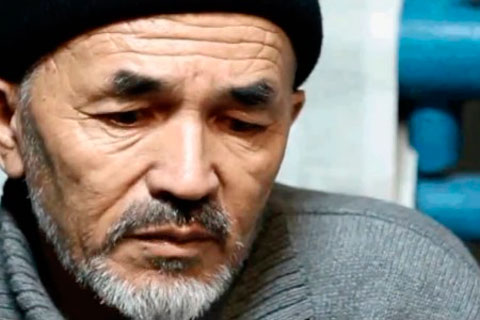Azimjan Askarov Case: decision of Supreme Court nowhere near implementation of UN Views
Paris-Geneva, July 13, 2016 - Yesterday, the Supreme Court of Kyrgyzstan ordered a fresh appeal hearing before the Chuy Regional Court in Bishkek in the case of human rights defender Azimjan Askarov, and left his life sentence conviction unchanged, FIDH said. Azimjan Askarov remains behind bars in blatant violation of the Views of the UN Human Rights Committee (CCPR), which concluded on April 21 that “Kyrgyzstan must take appropriate steps to immediately release him”.
On July 11 and 12, 2016, the Kyrgyzstan Supreme Court heard the appeal that had been filed by the lawyers of Mr. Azimjan Askarov under Article 41.2 of the Constitution, which obliges Kyrgyzstan to restore human rights in the event that international bodies confirm a violation. Both hearings were attended by lawyer Kirill Koroteev, from the Human Rights Centre "Memorial" (Russia), within the framework of a trial observation mandated by the Observatory.
“The purpose of this trial before the Supreme Court was to reconsider the case of Azimjan Askarov in the light of the CCPR Views, which requested his release in the first place, and his retrial if necessary”, said Kirill Koroteev, commenting on the decision.
“However, sending the case to a regional court means that the conviction and life sentence handed down by the Bazar Kurgan District Court in 2010 remain intact, and that Mr. Askarov remains in detention on the basis of the district court judgment. This is how the Supreme Court avoided even to discuss the possibility of his release, which is nowhere near the implementation of the CCPR Views”, he added, highlighting that it is likely that the Chuy Regional Court will not even examine evidence a new.
According to our observer, the trial was also marred by a number of procedural irregularities. A violation of the principles of equality of arms was notably reported in the morning of July 12, when a group of ethnic Kyrgyz women and men from southern Kyrgyzstan - some of whom appeared before the court with the formal “victim” status of the 2010 crimes imputed to Mr. Askarov - were invited by the Presiding Judge to present their views, while the attempts of Mr. Askarov’s lawyers to secure his attendance were repeatedly ignored. Besides, the court session had to be interrupted when the above-mentioned victims aggressively shouted at the bench and at Mr. Askarov’s lawyers, and after some of them even attempted to physically assault the lawyers.
The Observatory deplores the decision of the Supreme Court of Kyrgyzstan as well as the series of irregularities noted during the trial, and calls upon the Kyrgyz authorities to immediately release Mr. Azimjan Askarov as requested by the CCPR, as well as to put an end to any kind of harassment against the latter and more generally against all human rights defenders in the country.
The Observatory recalls that Mr. Azimjan Askarov founded the group Vozduh (Air) in 2002 in Bazar Kurgan, Jalalabad Oblast, in the South of the country to investigate police brutality and the conditions of Kyrgyz prisons. On several occasions, Azimjan Askarov was successful in fighting impunity in cases involving the local police. As a result, several police officials were not appreciative of his work. During the ethnic clashes of June 2010 in southern Kyrgyzstan, he documented the violence in Bazar Kurgan. Azimjan Askarov has repeatedly claimed his innocence, providing proof that he was not even present at the crime scene. Following a trial denounced by several international human rights groups for irregularities, including alleged torture and the courtroom intimidation of witnesses by police and of lawyers by the audience, Mr. Askarov was handed down a life sentence by the Bazar Kurgan District Court in 2010.
The Observatory for the Protection of Human Rights Defenders (OBS) was created in 1997 by FIDH and the World Organisation Against Torture (OMCT). The objective of this programme is to intervene to prevent or remedy situations of repression against human rights defenders.


















